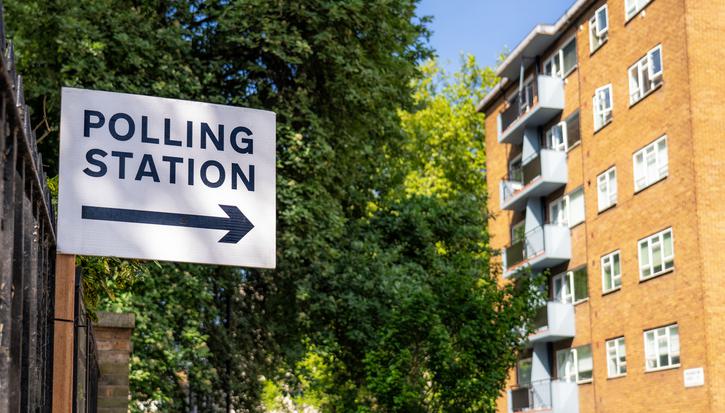Free movement and the EU referendum
What do we know about free movement and EU migration? Our new review of evidence and public attitudesArticle
This briefing is not intended to persuade readers to support or reject Britain’s membership of the EU, and IPPR is not taking a position on either side of the referendum question.
Our review of the evidence shows that the UK has seen sharply rising inflows of EU migration in recent decades and now has the second highest inflows of EU migrants in the EU. EU migrants have high employment rates, although migrants from central and eastern European countries experience low pay and overqualification. EU migrants tend to be less likely to claim out–of-work benefits but more likely to claim tax credits and child benefit than UK nationals.
Our focus groups with over-40s in Glasgow, Havering and Peterborough highlighted a range of concerns about EU migration, particularly focused on EU migrants’ access to welfare and pressures on public services. Participants also noted advantages of free movement, notably the opportunities for UK citizens to live and work easily in other EU countries and the benefits of EU migrants filling skills gaps.
The evidence…
… on past flows of EU migration
- In the 1990s, EU migration flows to the UK were roughly in the range of 40,000–80,000 per year, while net EU migration was almost zero. After the 2004 accession, EU migration flows rose dramatically to over 100,000 per year and have remained high over the past decade. There are now more than 3 million EU-born migrants in the UK. Compared to other EU countries, the UK has the second highest inflows of EU migrants, after Germany.
- Approximately 1.2 million Britons live in other EU countries – mainly in Spain, Ireland, France and Germany. The EU countries with the highest number of emigrants in other member states are Poland (3.5 million), Romania (3.0 million), and Germany (1.8 million).
… on future flows
- If the UK remains in the EU, then the proposed reforms set out in the European Council’s decision on ‘a new settlement for the UK within the EU’ (more commonly known as the prime minister’s ‘renegotiation deal’) are unlikely to have a significant impact on future EU migration flows. These are instead likely to be driven by differences in labour market conditions (such as wage levels and unemployment rates) between the UK and other EU countries.
- If the UK leaves the EU, then future flows from EU countries will depend on the immigration system the UK chooses to adopt. If the UK continues to participate in EU free movement as part of a new trade deal with the EU, then Brexit is unlikely to have an impact on EU migration to the UK. If the UK adopts a new policy to treat EU migrant workers similarly to how it currently treats non-EU migrant workers, then this will most likely lead to a fall in low-skilled EU migration. However, this alone will probably not be sufficient to meet the current government’s net migration target (to bring net migration down to the tens of thousands); to meet that target, further action would be needed.
… on EU migrants in the labour market
- EU migrants have higher employment rates than UK nationals. The employment rate of migrants from EU15 countries is 75 per cent, while the employment rate of migrants from NMS13 countries (including the A10 countries and Romania, Bulgaria and Croatia) is 83 per cent, higher than for UK-born nationals (74 per cent).
- However, central and eastern European migrants tend to be in low-skilled work and on low pay. The median gross hourly pay of NMS13 workers is £3 less than for UK nationals.
… on EU migrants and welfare and public services
- EU migrants are less likely to report claiming unemployment and sickness/disability benefits than UK nationals, but are more likely to report claiming tax credits and child benefit. They are also roughly as likely to live in social housing as UK nationals, and more likely to live in the private rented sector than UK nationals.
- There is little data on EU migrants’ use of healthcare in the UK, but estimates based on their age profile suggest that they make proportionately low use of the NHS.
- In education, analysis of the national pupil database suggests that those who speak central and eastern European languages as their first language tend to perform worse at key stage 4 than those whose first language is English.
Public attitudes
We spoke to three groups of over-40s, in Glasgow, Havering and Peterborough, targeting members of the public who did not have firm views on freedom of movement.
Many participants raised major concerns about EU migrants’ access to welfare, pressures on public services, crime and personal security, and wage undercutting. Many participants welcomed EU migrants that came to work and contribute, but were worried about those who they believed were taking out of the system before putting in. Others felt that the current system of free movement was unfair, given that flows across Europe were unbalanced. A number of people said they wanted restrictions on EU migration to the UK.
But we also found that a number of participants spoke of the benefits of free movement for UK citizens, as well as the advantages of EU migration in filling skills gaps in the UK economy.
In Peterborough, we discussed with our participants some challenges for both sides of the referendum debate. With respect to challenges for the Remain campaign, our participants agreed with the two arguments that the UK’s membership of the EU prevents the government from properly controlling EU migration and puts unsustainable pressures on public services. They were less certain about the argument that staying in the EU would mean that in the long term refugees would acquire free movement rights and be able to come to the UK.
With respect to challenges for the Leave campaign, our participants were unconvinced by the arguments that leaving the EU would not lead to a significant fall in net migration and would endanger the rights of British citizens living in EU countries. They were less certain about the argument that there is a trade-off between access to the single market and restricting freedom of movement.
Overall, our participants in Glasgow were most positive about freedom of movement and our participants in Havering were most negative.
Related items

Change you can board: Delivering better, greener buses
The bus services bill is an opportunity to ensure reform really means thriving, green 21st century local bus networks in England.
Harry Quilter-Pinner on BBC Radio 4 Today discussing political donations

Modernising elections: How to get voters back
Elections are the defining feature of modern democracy. They are the process by which we express a desired future en masse. It is the mass dimension that matters most; it is the mass dimension that is receding.